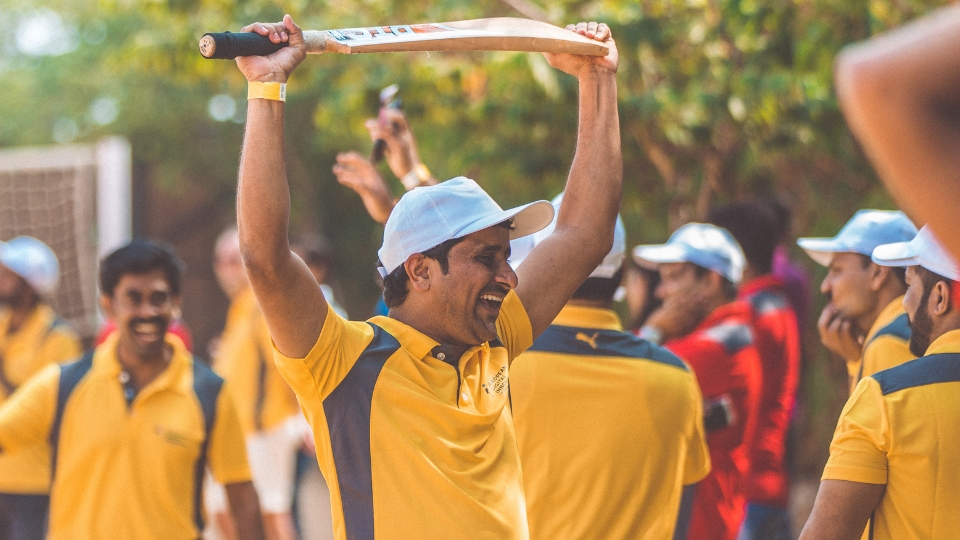When it comes to sports, few nations can rival the passion and devotion that India has for cricket. It is not just a sport; it is an integral part of Indian culture and identity. In this article, we will explore the significance of cricket in India’s sporting landscape, its history, and how it has strengthened the nation’s sense of unity through the years.
A brief history of cricket in India
The origins of cricket in India can be traced back to the 18th century, when it was introduced by British sailors and merchants. Over time, the sport gained popularity among the local population, leading to the formation of various cricket clubs throughout the country. The first officially recognized cricket match in India took place in 1864 between Madras and Calcutta.
In 1928, the Board of Control for Cricket in India (BCCI) was established, which would later become the governing body for the sport. As the years went by, Indian cricket saw numerous milestones, including its first Test Match victory in 1952 against England, and winning the 1983 World Cup led by the legendary Kapil Dev.
The role of cricket in uniting India
Cricket has played a significant role in bringing together people from diverse cultures, languages, and religions across India. Whether it is cheering for Team India during international tournaments or supporting their favourite players in the Indian Premier League (IPL), the love for cricket transcends all boundaries. This unifying factor has even led to the writing of cricket a religion in india essay.

Creating heroes and role models
The journey of Indian cricket has seen many outstanding players who have inspired millions with their exceptional talent, hard work, and dedication. From the Little Master Sunil Gavaskar to the charismatic Sachin Tendulkar and the iconic MS Dhoni, these cricketers have become household names and role models for young aspirants.
The success stories of these heroes not only instil a sense of pride but also motivate the youth to pursue their dreams and strive for excellence in their chosen field.
Cricket diplomacy: Strengthening bonds between nations
Cricket diplomacy has been an important aspect of India’s international relations, particularly with neighbouring countries such as Pakistan and Sri Lanka. High-profile cricket matches between these nations provide an opportunity for friendly competition, fostering goodwill and mutual understanding between the people and governments involved.
How cricket contributes to India’s economy
Cricket is not just a sport; it is also a significant contributor to India’s economy. The rise of the IPL in 2008 paved the way for a new era in the business of cricket, turning it into a multi-billion-dollar industry. Several factors contribute to the economic impact of cricket in India:
- Increased revenue from ticket sales, merchandise, and broadcasting rights
- Job creation in various sectors associated with the sport, such as coaching, event management, and hospitality
- Tourism boost during major cricket events, attracting both domestic and international visitors
- Enhanced brand value for companies that invest in sponsorships and endorsements
Challenges faced by Indian cricket
Despite its immense popularity and success, Indian cricket is not without challenges. Corruption scandals, such as match-fixing and spot-fixing, have tarnished the image of the sport in recent years. Moreover, inadequate sports infrastructure, especially at the grassroots level, hinders the development of promising talent from smaller towns and villages.
Addressing gender disparity
Another critical challenge for Indian cricket is the gender disparity that exists within the sport. While men’s cricket enjoys widespread popularity and lucrative financial opportunities, women’s cricket often struggles to gain the same attention and support. However, with the recent success of the Indian women’s cricket team and growing awareness about gender equality, there is hope for a more inclusive and balanced ecosystem in the future.
Cricket’s impact on other sports in India
The immense popularity of cricket in India has had both positive and negative implications for other sports. On one hand, the success of cricket has inspired many Indians to embrace sports and fitness as part of their lifestyle. This enthusiasm has led to a surge in interest and participation in various athletic disciplines, including badminton, wrestling, and athletics.
On the other hand, the commercial dominance of cricket has disproportionately allocated resources and sponsorship opportunities, often leaving athletes from other sports struggling for funding and recognition. Nonetheless, the recent achievements of Indian athletes in international events like the Olympics and Asian Games have sparked renewed interest and support for these sports, paving the way for a more diverse sporting culture in the country.

Comments are closed